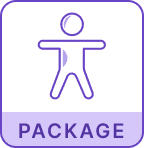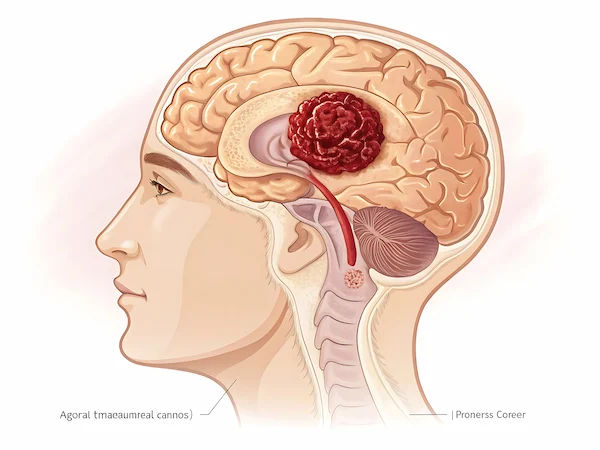How To Treat Shaky Hands: A Complete, Doctor-Backed Guide
Learn how to treat shaky hands with expert-backed tips. Understand the common causes, from stress to essential tremor, and explore medical and home treatment options for steady hands.


Introduction
Shaky hands can make simple tasks—buttoning a shirt, sipping coffee, or typing a text—feel frustrating. The good news: most tremors are manageable, and many are treatable once you pinpoint the cause. Whether your hands shake with stress, after coffee, or during everyday activities, this guide explains how to treat shaky hands step by step. You’ll learn what causes tremors, when to get medical help, which home strategies and exercises truly help, and what to know about medications and advanced treatments like deep brain stimulation or focused ultrasound. We’ll also cover practical daily hacks and devices that make life easier right away. If symptoms persist beyond two weeks, consult a doctor online with Apollo24|7 for further evaluation. For lab checks like thyroid function, vitamin B12, or HbA1c, Apollo24|7 offers convenient home collection. Let’s take the mystery—and anxiety—out of shaky hands so you can regain comfort and control.
Consult Top Specialists
Understanding Shaky Hands: What Counts as a Tremor?
Shaky hands usually indicate a tremor—an involuntary, rhythmic muscle movement that most often affects the hands but can involve the head, voice, or legs. Not all tremors are the same, and understanding which type you have helps you treat shaky hands effectively.
Essential Tremor vs Parkinsonian Tremor
Essential tremor (ET) is among the most common movement disorders and typically shows up as an “action” tremor—shaking when you hold a posture or use your hands (e.g., holding a cup, writing). It often affects both hands symmetrically, may improve temporarily with small amounts of alcohol, and can run in families. Parkinsonian tremor, by contrast, often occurs at rest, can start on one side, and is accompanied by other symptoms like slowness, stiffness, and reduced arm swing. Distinguishing these patterns matters because treatments differ.
Enhanced Physiologic Tremor (Stress, Caffeine, Fatigue)
All of us have a very mild baseline tremor. Stress, sleep loss, caffeine, nicotine, certain medications, low blood sugar, or thyroid overactivity can amplify this into a noticeable “enhanced physiologic tremor.” Reducing triggers often brings quick relief.
Cerebellar, Dystonic, and Orthostatic Tremors in Brief
Less common tremors include cerebellar tremor (worse at the end of reaching, often from cerebellar disorders), dystonic tremor (irregular, in people with dystonia/postural abnormalities), and orthostatic tremor (legs shake on standing, relieved by sitting). These require specialist evaluation and tailored therapy.
Common Causes and Triggers You Can Address Today
Tremors arise from neurological conditions, metabolic issues, medications, or daily habits. Addressing modifiable factors is often the fastest way to treat shaky hands at home.
Medical Conditions (Thyroid, Low Blood Sugar, Vitamin Deficiencies)
Hyperthyroidism commonly causes a fine, fast tremor, weight loss, heat intolerance, and palpitations. Low blood sugar can trigger shakiness, sweating, and confusion; addressing meal timing or diabetes control helps. Vitamin B12 deficiency can cause neurological symptoms and occasionally tremor; correcting deficiencies improves function. If you suspect any of these, request lab tests—TSH, fasting glucose/HbA1c, and B12. Apollo 24|7 offers home collection for these tests.
Medications That Can Cause Tremor
Several drugs can cause or worsen tremor, including bronchodilators (e.g., albuterol), SSRIs/SNRIs, lithium, valproate, tricyclic antidepressants, antipsychotics, and stimulants. Never stop a prescribed drug on your own; instead, ask your clinician whether a dose change, timing tweak, or an alternative is appropriate.
Lifestyle Triggers: Caffeine, Nicotine, Stress, Sleep Loss, Alcohol
Caffeine and nicotine stimulate the nervous system; cutting back often reduces tremor within days. Stress and sleep deprivation amplify tremor; improving sleep hygiene and stress skills can cut symptom severity. Small amounts of alcohol sometimes improve essential tremor briefly, but routine alcohol use is not a safe or durable treatment strategy.
Red Flags and When to See a Doctor?
Most tremors are benign, but some warrant prompt evaluation. You should see a doctor in the following situations:
Sudden Onset, Neurologic Symptoms, or Tremor at Rest
Seek urgent care if tremor starts abruptly with weakness, trouble speaking, vision changes, severe headache, or imbalance. A tremor at rest, especially with stiffness or slowness, should be evaluated for Parkinson’s disease. Any rapidly worsening tremor deserves attention.
Impact on Daily Living and Work
If shaky hands interfere with eating, writing, driving, or work tasks, or if others notice a change, schedule a medical visit. You may benefit from therapy, medication, or assistive devices to protect independence and safety.
How to Prepare for Your Appointment?
Bring your 2-week trigger log, list of medications/supplements, family history, and a short video of your tremor doing specific tasks (writing, holding arms out, drinking). If symptoms persist beyond two weeks or you’re unsure of the cause, consult a doctor online with Apollo 24|7 to triage next steps and arrange testing.
How Doctors Diagnose Shaky Hands?
Diagnosis starts with pattern recognition and targeted tests. Let’s see how doctors diagnose shaky hands:
History and Exam: What Your Clinician Looks For
Your doctor will ask about onset, triggers, family history, alcohol response, and associated symptoms. The exam distinguishes action vs rest tremor, symmetry, and involvement of head/voice/legs and looks for rigidity, bradykinesia, or ataxia to guide diagnosis.
Labs and Tests: Thyroid, B12, Glucose, and More
Common labs include TSH (thyroid), vitamin B12, fasting glucose/HbA1c, kidney/liver function, electrolytes, and sometimes ceruloplasmin (in younger patients with atypical features). These help identify reversible causes. Apollo 24|7 offers home sample collection for many of these labs.
Get The Tests Here
Imaging and Specialist Referral: When and Why
If the story suggests structural brain disease (stroke, tumour, demyelination) or atypical features (e.g., cerebellar signs), imaging may be ordered. Movement disorder specialists can confirm essential tremor or Parkinson’s and discuss advanced therapies as needed.
Lifestyle and At-Home Strategies to Treat Shaky Hands
Simple adjustments can reduce tremor severity and your day-to-day frustration. Here are some lifestyle changes to try at home:
Stress Reduction (Breathing, CBT Skills), Sleep, and Hydration
Brief, frequent breathing practices (e.g., 4-7-8 breathing for 2 minutes, three times daily) lower sympathetic arousal that fuels tremor. Cognitive behavioural therapy (CBT) skills help reframe “performance anxiety” situations (presentations, social meals). Aim for 7–9 hours of sleep; even one more hour per night can noticeably dampen enhanced physiologic tremor.
Caffeine, Nicotine, and Alcohol: Smart Cutbacks
Reduce caffeine by 50% for a week, then reassess. Replace afternoon coffee with decaf or herbal tea. Nicotine withdrawal can temporarily worsen tremor; plan a gradual taper with professional support. Limit alcohol to low-risk intake; it may transiently help essential tremor, but rebound tremor and dependence risks outweigh benefits.
Braces, Weighted Tools, and Simple Positioning Hacks
Use weighted pens and utensils, wide-handled mugs, and non-slip mats. Brace your forearms on the table while eating; keep elbows tucked close when lifting a glass. Try wrist weights for fine tasks; many people report steadier hand control with 0.5–1 kg weights during specific activities.
Natural Remedies: What’s Backed by Evidence?
Magnesium or B-complex vitamins help only if deficient; there’s limited evidence for otherwise healthy individuals. Omega-3s support brain health but aren’t established tremor treatments. Always review supplements with a clinician to avoid interactions (e.g., with blood thinners). If your condition does not improve after trying these methods, book a physical visit to a doctor with Apollo 24|7.
Exercises and Occupational Therapy That Make a Difference
Targeted exercises improve coordination, endurance, and functional control. Here are some exercises to try:
Strength, Coordination, and Rhythm Drills
Try 10-minute daily sessions:
• Isometric holds: Gently squeeze a soft ball for 5–10 seconds, relax, repeat x10 per hand.
• Rhythm training: Tap thumb to each finger in sequence, increasing tempo with a metronome app; 3 sets of 60 seconds.
• Reaching control: Slowly trace large-to-small circles in the air with your index finger, focusing on smoothness.
Evidence supports occupational therapy in essential tremor for functional gains, especially when combined with assistive devices.
Adaptive Equipment for Eating, Writing, and Tech Use
Weighted utensils and pens, spill-resistant cups, plate guards, and phone grips reduce spill risk and hand fatigue. Stabilising spoons and gyroscopic devices can counteract tremor during eating. A rolled-up towel under the forearms while typing often improves accuracy.
Medications: What Works and What to Ask Your Doctor
Medication can be transformative when lifestyle adjustments aren’t enough.
First-Line for Essential Tremor: Propranolol and Primidone
Propranolol (a beta-blocker) and primidone (an anticonvulsant) are the most studied first-line medications for essential tremor, reducing tremor amplitude for many patients. Propranolol can be used daily or situationally (e.g., prior to a presentation). It isn’t ideal for people with asthma or certain heart conditions. Primidone is titrated slowly to avoid sedation or dizziness. Discuss risks, benefits, and dosing with your clinician.
Alternatives: Topiramate, Gabapentin, Benzodiazepines, Botulinum Toxin
Topiramate and gabapentin may help some individuals; side effects can include cognitive slowing (topiramate) or fatigue. Benzodiazepines can calm tremors linked to anxiety but carry dependence and sedation risks; use cautiously for short-term or situational relief. Botulinum toxin injections help head/voice tremors and selected hand cases but may cause finger weakness; an experienced specialist is essential.
Parkinson’s Tremor Medications
If tremor is due to Parkinson’s disease, levodopa is the cornerstone therapy; other options include dopamine agonists and anticholinergics (the latter used sparingly due to side effects, especially in older adults). Treatment choice depends on age, symptom profile, and side-effect tolerance.
Managing Medication-Induced Tremors
If a prescribed medication triggers tremor, options include dose adjustment, changing timing (e.g., after meals), or switching to a different class. Your prescriber will weigh risks and benefits; never adjust on your own.
Advanced Options: Deep Brain Stimulation and Focused Ultrasound
When tremor severely limits daily life despite optimal medical therapy, advanced interventions can help.
How DBS Works, Who It Helps, and Outcomes
Deep brain stimulation involves implanting electrodes into specific brain targets (often the thalamus for ET) connected to a pacemaker-like device. DBS can reduce tremor substantially and is adjustable and reversible; common reports show significant functional improvement in carefully selected patients. Risks include infection, bleeding, and device issues; evaluation by a multidisciplinary team is standard.
MRI-Guided Focused Ultrasound: A Non-Invasive Option
Focused ultrasound thalamotomy uses MRI-guided ultrasound beams to create a precise lesion in the tremor pathway without an incision. In a randomised NEJM trial, tremor severity improved significantly compared with the sham procedure at 3 months and sustained benefits at 12 months for many patients. Side effects can include transient numbness or gait issues; it’s typically performed on one side.
Wearables and New Tech: What’s Emerging
FDA-cleared wrist-worn neuromodulation devices (e.g., Cala) deliver patterned stimulation to nerves in the wrist to reduce essential tremor during use, offering a non-pharmacologic option for some people. Early data suggest meaningful short-term relief for selected users; discuss with your clinician whether you might be a candidate.
Anxiety-Related Tremor: Calming the Nervous System
Anxiety doesn’t cause all tremors, but it can amplify them—and it’s treatable. Here are some remedies:
CBT, Mindfulness, and Biofeedback
CBT reduces performance and social anxiety that often trigger hand shaking, improving control in predictable high-stress situations. Mindfulness practices (e.g., 10 minutes of guided breathing or body scan) lower physiologic arousal. Biofeedback teaches you to modulate heart rate variability to steady your hands under pressure.
Situational Beta-Blockers and When They’re Appropriate
Low-dose propranolol taken ahead of an anxiety-provoking event (public speaking, exams) can reduce tremor for some people; it must be medically appropriate and prescribed by a clinician. This strategy is particularly useful for enhanced physiologic tremor.
Building a Personalised “Calm Plan”
Pair a short pre-event routine (hydration, breathing, 5-minute warm-up task) with environment tweaks (heavy mug, stable surface). Over time, you can desensitise triggers and build confidence.
Living Well with Shaky Hands: Daily Hacks and Confidence Builders
Practical adjustments protect independence and reduce frustration.
Food Prep, Dining, and Clothing Tips
Choose bowls over plates for soups; use lidded travel mugs; place non-slip mats under plates; use a rocker knife; pre-slice tougher foods. For dressing, opt for magnetic buttons or zippers and sit to stabilise your arms while fastening.
Communication at Work and School
Tell key colleagues or teachers that you have a tremor and what helps (e.g., voice-to-text, using a weighted pen). Request small adjustments like seated presentations or access to a stable lectern.
Tracking Progress and Knowing When to Escalate Care
Use a weekly 0–10 tremor score for core tasks (writing, drinking, typing). If scores plateau despite consistent strategies for 3–4 weeks, or function declines, consult a doctor online with Apollo 24|7 for next steps or referral to a neurologist.
Consult Top Specialists
Conclusion
Shaky hands can feel discouraging, but they’re often manageable with the right plan. Start by figuring out what kind of tremor you have—essential, physiologic, Parkinsonian, or another type—and run a simple 2-week audit of triggers like caffeine, stress, sleep loss, and medications. Small changes add up: better sleep, smarter caffeine habits, and targeted exercises can noticeably steady your hands. If you need more help, proven treatments exist. For essential tremor, medications such as propranolol or primidone often reduce shaking; for Parkinson’s tremor, levodopa-based regimens may be appropriate. When tremor severely impacts daily life, advanced options like deep brain stimulation or MRI-guided focused ultrasound can provide substantial relief in selected cases. Don’t go it alone—an evaluation ensures you’re treating the right cause and not overlooking red flags. If symptoms persist beyond two weeks or interfere with work, eating, or driving, consult a doctor online with Apollo 24|7 for tailored guidance. If tests are needed, Apollo 24|7 offers home collection for thyroid function, vitamin B12, and HbA1c. With a structured approach and the right support, you can treat shaky hands, rebuild confidence, and get back to the activities that matter most.
Consult Top Specialists

Dr. Rajib Ghose
General Physician/ Internal Medicine Specialist
25 Years • MBBS
East Midnapore
VIVEKANANDA SEBA SADAN, East Midnapore

Dr. Swaroopa Rani
General Physician/ Internal Medicine Specialist
9 Years • MBBS, MD (Internal Medicine)
Bengaluru
Apollo Medical Center, Marathahalli, Bengaluru

Dr. Dhanraj K
General Physician/ Internal Medicine Specialist
25 Years • MBBS, MD Internal Medicine - Osmania Medical College, Hyderabad
Hyderabad
Apollo Hospitals Jubilee Hills, Hyderabad
(400+ Patients)

Dr. Ashita Kuruvilla
General Physician/ Internal Medicine Specialist
7 Years • MBBS
East Midnapore
VIVEKANANDA SEBA SADAN, East Midnapore

Dr. Abhishek Gowda
General Physician/ Internal Medicine Specialist
3 Years • MBBS MD General Medicine
Bengaluru
PRESTIGE SHANTHINIKETAN - SOCIETY CLINIC, Bengaluru
Consult Top Specialists

Dr. Rajib Ghose
General Physician/ Internal Medicine Specialist
25 Years • MBBS
East Midnapore
VIVEKANANDA SEBA SADAN, East Midnapore

Dr. Swaroopa Rani
General Physician/ Internal Medicine Specialist
9 Years • MBBS, MD (Internal Medicine)
Bengaluru
Apollo Medical Center, Marathahalli, Bengaluru

Dr. Dhanraj K
General Physician/ Internal Medicine Specialist
25 Years • MBBS, MD Internal Medicine - Osmania Medical College, Hyderabad
Hyderabad
Apollo Hospitals Jubilee Hills, Hyderabad
(400+ Patients)

Dr. Ashita Kuruvilla
General Physician/ Internal Medicine Specialist
7 Years • MBBS
East Midnapore
VIVEKANANDA SEBA SADAN, East Midnapore

Dr. Abhishek Gowda
General Physician/ Internal Medicine Specialist
3 Years • MBBS MD General Medicine
Bengaluru
PRESTIGE SHANTHINIKETAN - SOCIETY CLINIC, Bengaluru
Consult Top Specialists

Dr. Rajib Ghose
General Physician/ Internal Medicine Specialist
25 Years • MBBS
East Midnapore
VIVEKANANDA SEBA SADAN, East Midnapore

Dr. Swaroopa Rani
General Physician/ Internal Medicine Specialist
9 Years • MBBS, MD (Internal Medicine)
Bengaluru
Apollo Medical Center, Marathahalli, Bengaluru

Dr. Dhanraj K
General Physician/ Internal Medicine Specialist
25 Years • MBBS, MD Internal Medicine - Osmania Medical College, Hyderabad
Hyderabad
Apollo Hospitals Jubilee Hills, Hyderabad
(400+ Patients)

Dr. Ashita Kuruvilla
General Physician/ Internal Medicine Specialist
7 Years • MBBS
East Midnapore
VIVEKANANDA SEBA SADAN, East Midnapore

Dr. Abhishek Gowda
General Physician/ Internal Medicine Specialist
3 Years • MBBS MD General Medicine
Bengaluru
PRESTIGE SHANTHINIKETAN - SOCIETY CLINIC, Bengaluru
More articles from General Medical Consultation
Frequently Asked Questions
1) What is the best way to stop hand tremors naturally?
Start with a 2-week trigger audit: reduce caffeine and nicotine, improve sleep, and add 10 minutes daily of finger-tapping and isometric squeezes. Many people see improvement in enhanced physiologic tremor with these steps.
2) Which medications treat essential tremor most effectively?
Propranolol and primidone are first-line options with good evidence for reducing tremor amplitude. Alternatives include topiramate, gabapentin, or botulinum toxin in specific cases. Discuss risks and dosing with your doctor.
3) Can vitamin deficiency cause shaky hands?
Vitamin B12 deficiency can contribute to neurologic symptoms, and in some cases tremor. Testing and replacing deficiencies can help. Apollo24|7 offers home collection for B12 testing.
4) Do anxiety tremors mean I have Parkinson’s?
No. Anxiety can amplify an action tremor (enhanced physiologic tremor). Parkinson’s tremor often occurs at rest and includes other symptoms like slowness and stiffness. If unsure, consult a clinician for evaluation.
5) When should I consider surgery for tremor?
If tremor severely limits eating, writing, or work despite optimised medication and therapy, ask about deep brain stimulation or focused ultrasound. A movement disorder specialist can evaluate candidacy.









